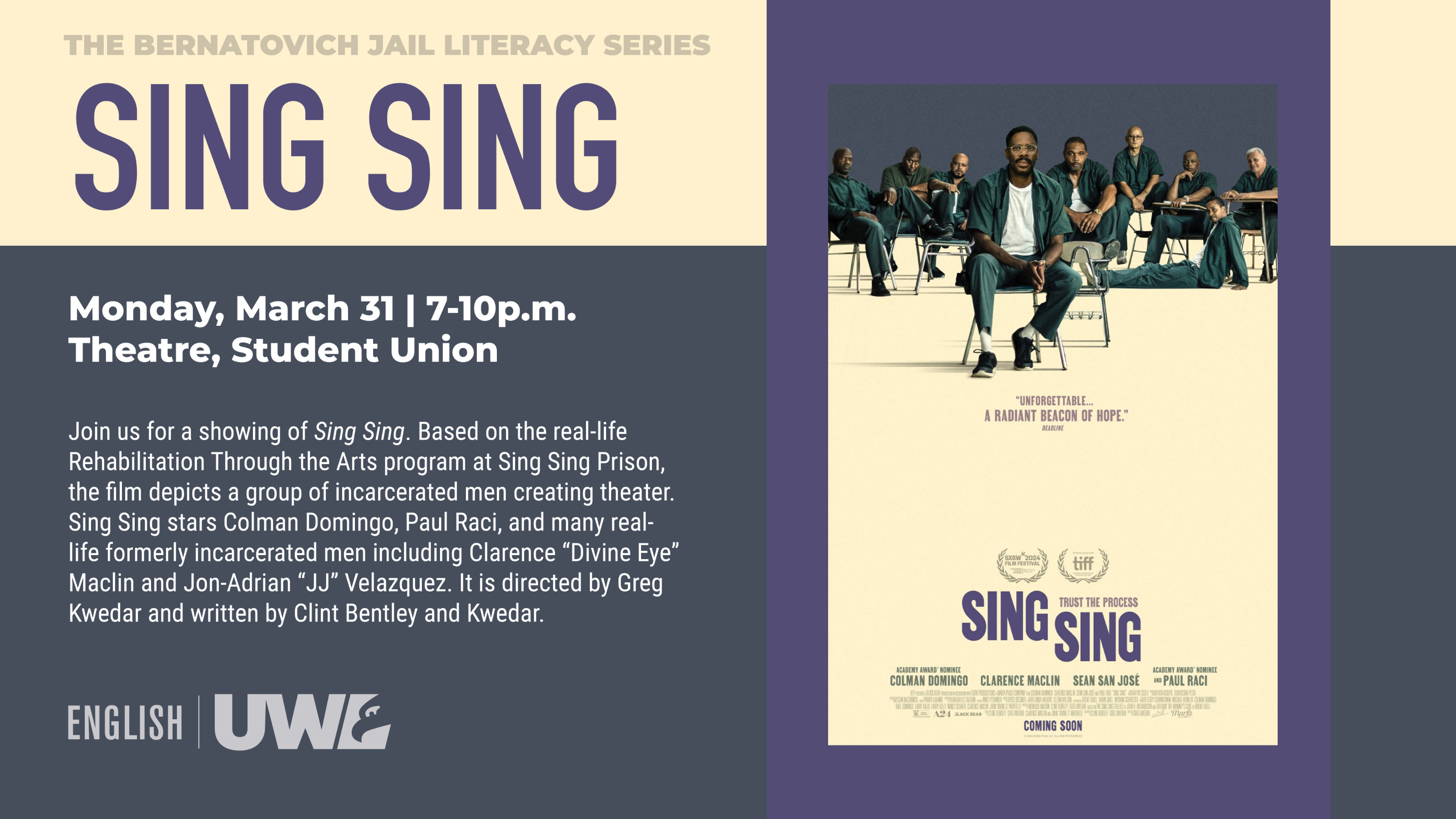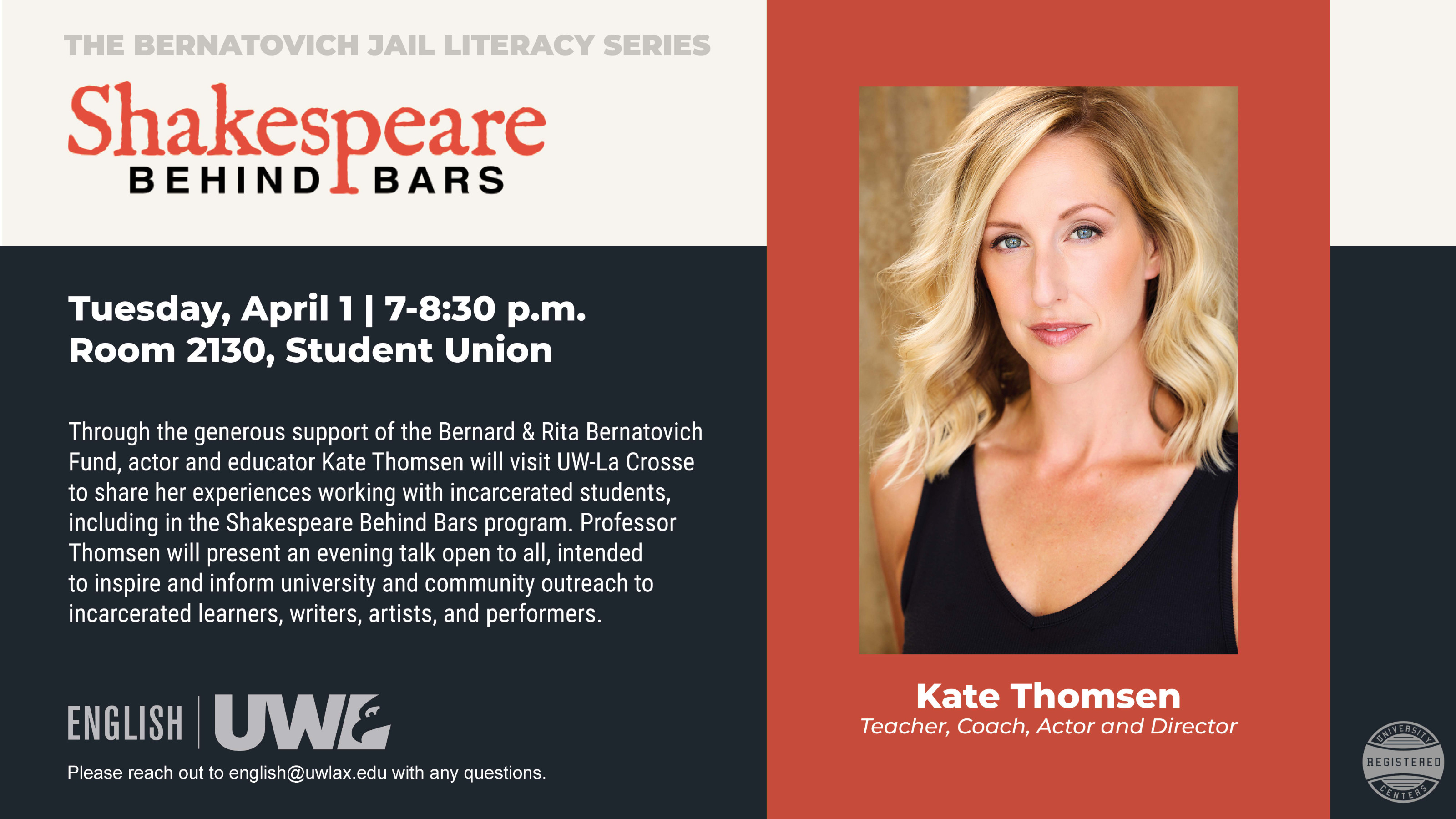Undergraduate programs
English
Undergrad major Undergrad minor Teacher licenseAn English major is a humanities degree with strong emphasis on reading and writing. Students are challenged to think deeply about what they read and observe, organize their thoughts, and develop arguments. Communication, creative thinking and problem-solving skills make them attractive to employers and graduate schools.
Areas of study
Education
This major prepares students to become dynamic English Language Arts (ELA) teachers who can meet the needs of adolescent learners at both the middle and high school levels. Faculty guide students through rigorous coursework in fields such as literature, writing, linguistics, and ELA pedagogy. Students receive personalized mentoring throughout multiple field experience and student teaching semesters. English education majors who meet the necessary criteria graduate with a license to teach grades 4-12 in the state of Wisconsin.
Undergrad major Teacher license View a sample plan for Education Catalogfor EducationLanguage & Literature
The English language and literature minor provides a foundation in English Language Arts-related topics and is especially relevant for students who plan to teach in the middle grades or overseas. It addresses issues of literary analysis, linguistics, writing instruction, and literature with particular attention to young adult literature.
Undergrad minor View a sample plan for Language & Literature Catalogfor Language & LiteratureLiterary & Cultural Studies Emphasis
The literary and cultural studies emphasis focuses on developing critical modes of inquiry, foundational and transferable skills in writing, and innovative research focusing on the study of culture and the human condition. Cross-disciplinary conversations hone students’ abilities to analyze diverse personal, cultural, ethical, and global perspectives, and to find creative solutions to complex problems.
Undergrad major Undergrad minor View a sample plan for Literary & Cultural Studies Catalogfor Literary & Cultural StudiesMedical Professions Emphasis
The English major: medical professions emphasis combines courses from English and biology to prepare students for careers in healthcare while they also complete some of the pre-healthcare coursework, practice their writing skills, and study the human condition through narrative. These skills are essential for health-related careers focused on writing and communication.
Undergrad major View a sample plan for Medical Professions Catalogfor Medical ProfessionsWriting & Rhetoric Studies Emphasis
In the writing and rhetoric emphasis students are empowered to examine and shape the world through writing. They develop high-demand written communication skills, gain experience working in teams, learn digital writing technologies, and address diverse audience needs.
Undergrad major View a sample plan for Writing & Rhetoric Studies Catalogfor Writing & Rhetoric StudiesProfessional & Technical Writing
Undergrad minor Undergrad certificateProfessional and technical writing is written communication within an organization for a specific purpose, typically aligned with the organization’s goals. Professional writers can translate complex information into easy-to-digest prose. This writing may appear in technical documents, newsletters, reports, press releases, emails, messaging apps and more.
Creative Writing
Undergrad minorCreative writing is a process of creating written works including fiction, creative non-fiction, poetry, screen writing, stage writing or play writing. Creative writing starts with the generation of an idea. It continues with composing, revising, and publishing creative pieces.
Linguistics
Undergrad minorLinguistics is the scientific study of human language. We are used to studying language from a humanistic perspective. Linguistics applies scientific methodology to language with the goal of understanding how human language works — cognitively, biologically, physically and socially.
English Connections
English & Medicine
Since 1998, English graduates have surpassed STEM majors in acceptance rates to medical school, and English has become the 7th most popular major on medical school applications.
Our department is committed to the invaluable interdisciplinary applications of English and creating new pathways for students post-graduation that will help them flourish in their occupation.
Interested in pursuing a career in health and medicine? Check out the English Major: English for Medical Professions emphasis.
English & Law
In the 2018-2019 academic year, English graduates boasted a 79.42% acceptance rate into law school, surpassing political science and legal studies applicants. Our major and minor programs will refine the skills necessary to move beyond an undergraduate education and to cultivate a successful legal career.
English & Nonprofit Advocacy
The values and skills English majors develop throughout our programs set them up to be prime researchers, critical thinkers, and social servants after graduating. For those interested in a career in nonprofit work, the English major is the perfect place to build up the foundational knowledge in understanding advocacy initiatives & organizations.
English & Psychology
Our English programs expand upon the cognitive and introspective qualities that are instrumental in providing humanizing and empathetic care within psychology careers. Discover new ways of understanding patient narratives and history while connecting with those who are looking to do the same!














